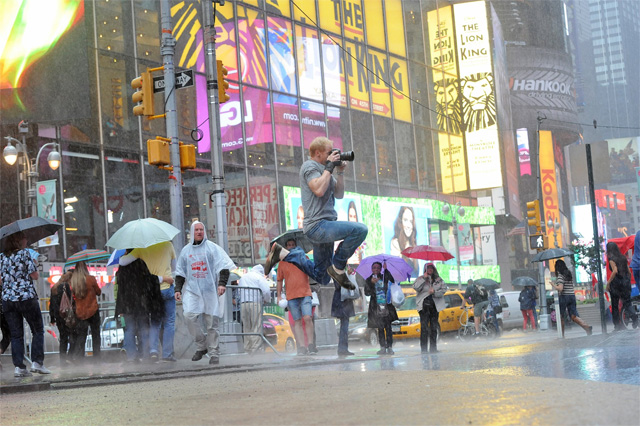My seven-year-old son, Hudson, had just returned from his first grade class, where he had learned about Rosa Parks and Martin Luther King, Jr. He wanted to act out the story. He had a toy plane set up as a bus, and he was lining up Playmobil figurines to represent the passengers. There was a solitary black woman sitting among the white figurines.
A police officer figurine walked on to the bus. "You have to stand up. This bus is for white people only. Oh, you won't move? Okay, you're in jail."
I interrupted his game. "Hudson, why do you think he did that?"
He looked at me blankly. "I don't know."
He returned to his game. I went into the kitchen. When I came back, Martin Luther King had been shot. A crowd had gathered, and Hudson was playing all the roles.
"What happened?"
"A bad man shot him."
"Why?"
"Because he thought everyone should be the same and that made the bad man angry."
Hudson stopped playing suddenly and looked up at me. "They caught the bad guy, right Daddy? Is he in jail? Why was he so angry? Why did he kill Martin Luther King? He didn't do anything bad."
I realized in that moment how difficult it is to explain prejudice; it's a foreign concept to an innocent mind. I looked down at this gruesome scenario he had created, and saw the confusion in his eyes, and I had no words of reassurance.
"I honestly don't know, Hudson."
His eyes brightened suddenly. "I want to be a leader, too. Just like Martin Luther King. I can help people, too."
My heart swelled, not with parental pride but with the humility of seeing humanity at its best. There is a famous quote by Bansky: "They say you die twice. One time when the breath leaves your body, and a second time when somebody says your name for the last time." In this way, heroes like Martin Luther King, Jr. will never die.
"After" in the Grieving chapter of Dancers Among Us,
featuring Chloe Crade at Graceland Cemetery in Chicago, IL






